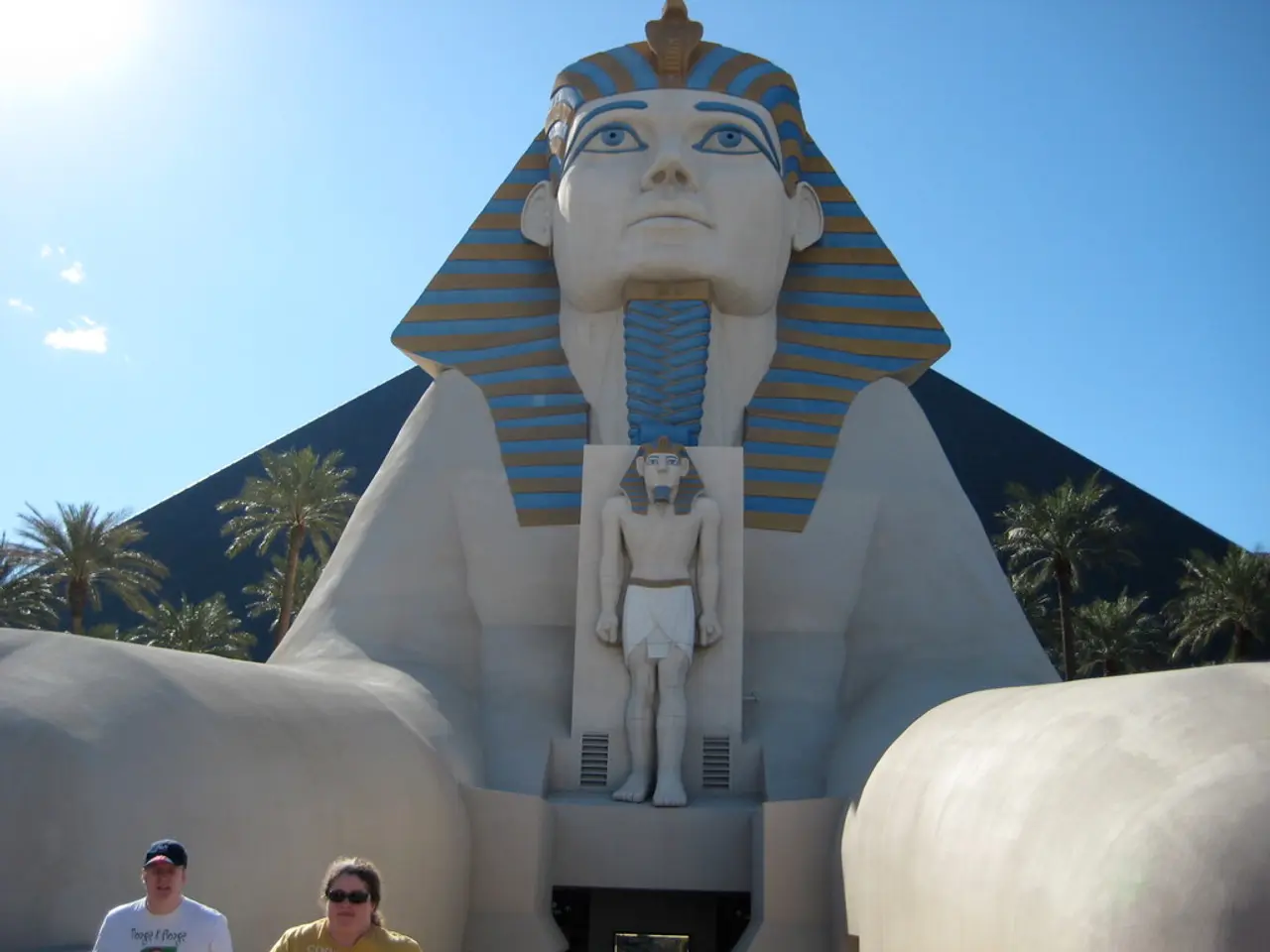Multilateral lenders BII, AfDB, and EBRD offer financial support totaling $479 million for a solar and energy storage project in Egypt
In the heart of the Nagaa Hammadi region, a significant solar photovoltaic plant and 200 MWh battery energy storage system project is underway. Known as the Obelisk project, this 1.1 gigawatt renewable energy venture is expected to become operational in 2026, making a significant contribution to Egypt's renewable energy goals.
The combined funding for the project totals $479.1 million, provided by British International Investment (BII), the African Development Bank (AfDB), and the European Bank for Reconstruction and Development (EBRD).
BII has provided a $100 million concessional loan and a $15 million returnable grant to support the project. The AfDB, on the other hand, has assembled a financing package of $184.1 million, while the EBRD has provided a $6.5 million grant and a first-loss cover guarantee for the project's financial stability.
The Obelisk project is forecast to generate approximately 3,000 GW-hours of additional renewable power annually, cutting CO2 emissions by up to 1.4m metric tonnes annually. Once operational, it will be the largest integrated solar power and battery energy storage system project in Egypt, playing a crucial role in advancing the nation's renewable energy goals, aiming to generate 42% of its electricity from renewables by 2030.
The project is owned by Obelisk Solar Power, a special-purpose vehicle set up by Scatec, which is developing several solar energy projects in Egypt. Scatec's Managing Director, Macaulay, believes that the Obelisk project will demonstrate the viability of large-scale renewable energy projects in Egypt and Africa, potentially making them more attractive to private investors.
The International Finance Corporation (IFC) has also invested in a renewable energy project in the Aswan region, integrating 300MWh of battery energy storage system (BESS) into a 500MW solar photovoltaic power plant.
The Obelisk project is not the only renewable energy venture in Egypt. BII has also provided $135m senior debt investment and an additional $26m mezzanine financing to H1 for the Kenhardt project, a renewables-plus-solar development in South Africa, which is similar to the Obelisk project in terms of its renewable energy focus.
When operational, the Obelisk project will help improve grid stability and manage peak demand due to its power being dispatchable. The project is a testament to the growing interest in renewable energy projects in Egypt and Africa, driven by international financial institutions and private sector participation.
- The Obelisk project, a significant renewable energy venture in Egypt, is anticipated to become operational in 2026, receiving a combined funding of $479.1 million from British International Investment (BII), the African Development Bank (AfDB), and the European Bank for Reconstruction and Development (EBRD).
- Financial institutions, such as the IFC, have shown their commitment to renewable energy in Egypt by investing in projects like the one in the Aswan region, which integrates 300MWh of battery energy storage system into a 500MW solar photovoltaic power plant.
- The Obelisk project, owned by Obelisk Solar Power and developed by Scatec, demonstrates the viability of large-scale renewable energy projects in Egypt and Africa, potentially attracting more private investors in the industry.
- Alongside the Obelisk project, BII has also invested $135m in senior debt and an additional $26m in mezzanine financing for the Kenhardt project, a renewables-plus-solar development in South Africa, showing the growing trend of development finance in renewable energy projects across the continent.




